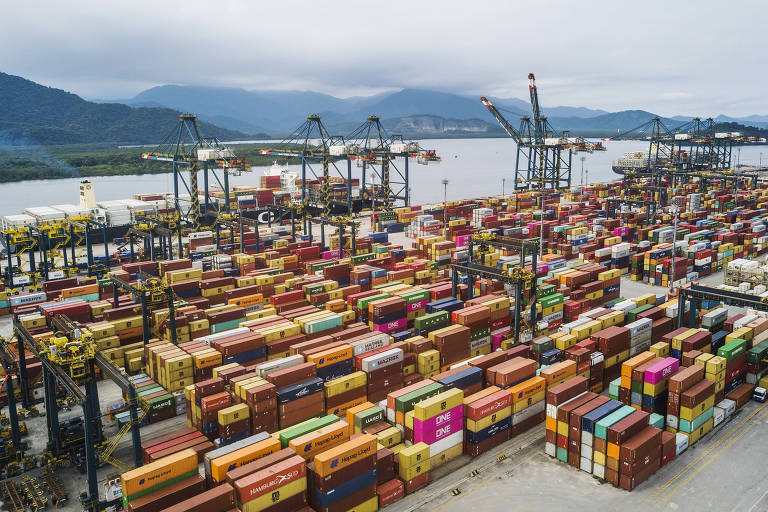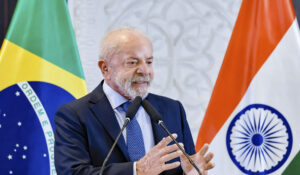
Published 08/04/2025 14:32 | Edited 08/04/2025 16:55
Amid the global turmoil caused by the tariff war between the United States and China, some emerging economies envision opportunities. This is the case of Brazil, which was one of the few countries to escape with a milder “reciprocal” tariff of only 10%, imposed by the Donald Trump government. The new round of tariffs comes into force on Wednesday (9) and can, contradictorily, represent a competitive advantage for the country in strategic areas such as agribusiness and export of manufactured.
Trump’s tariff offensive especially significant commercial surplus economies, such as China, Japan, South Korea, Vietnam and Bangladesh – all penalized at rates of over 20%, up to 46%. Brazil, on the other hand, is a liquid importer (a term used to describe a country that imports more than exports a particular type of product or service) of American products, which positions it as a lower risk commercial partner in the eyes of the White House.
In addition, the country can inherit part of the demand that will be redirected by Chinese companies hit by US tariffs.
The recent history also plays in favor. During Trump’s first term, Brazilian soybean and corn producers profited from the vacuum left by the suspension of Chinese US grains purchases. This scenario can now be repeated with China looking for new suppliers of agricultural commodities, meat and processed foods. Brazil is expected to expand its presence in the Chinese market, while reducing its vulnerability to oscillations in the US.
Other emerging countries are also attentive to breaches that open with the tariff. Egypt, Morocco and Türkiye, all with commercial deficits with the US, see room to advance in sectors such as textiles and steel, as direct competitors – such as Bangladesh and Vietnam – face heavy overflows. “The opportunity is in sight, we just need to grasp it,” Magdy Tolba, president of the Egyptian-Turka company T&C Garmers, told Reuters.
In Asia, India bets on redistribution of the global supply chain to expand its slice in the US market, especially in the clothing, shoe and electronics production sectors. It is also expected that part of the manufacture of iPhones, now concentrated in China, to be transferred to the country, due to the new tariffs imposed on Beijing.
Nevertheless, analysts warn that no country will be completely unharmed. In Singapore, for example, the Straits Times index has registered its largest drop since 2008, and the government already admits that a recession in the US or global economy can cancel any immediate benefit. “There are no winners in a trade war,” said Banco OCBC economist Selena Ling. “Everything is relative.”
In South America, in addition to Brazil, the impasse between Washington and Beijing is expected to resume negotiations around the trade agreement between Mercosur and the European Union. With its exports still strongly concentrated in commodities, Brazil could become the biggest beneficiary of a possible advance in the treaty, gaining easy access to the European market at a time of reconfiguration of global commerce routes.
Although opportunities exist, experts warn that gains will be limited by the impacts of a global recession. Instability in capital flows, exchange rate volatility and retraction in demand for industrial goods can curb any more consistent impulse. Still, in the face of chaos, countries like Brazil continue to look for breaches to expand their presence in global markets – even in times of war.
Source: vermelho.org.br

